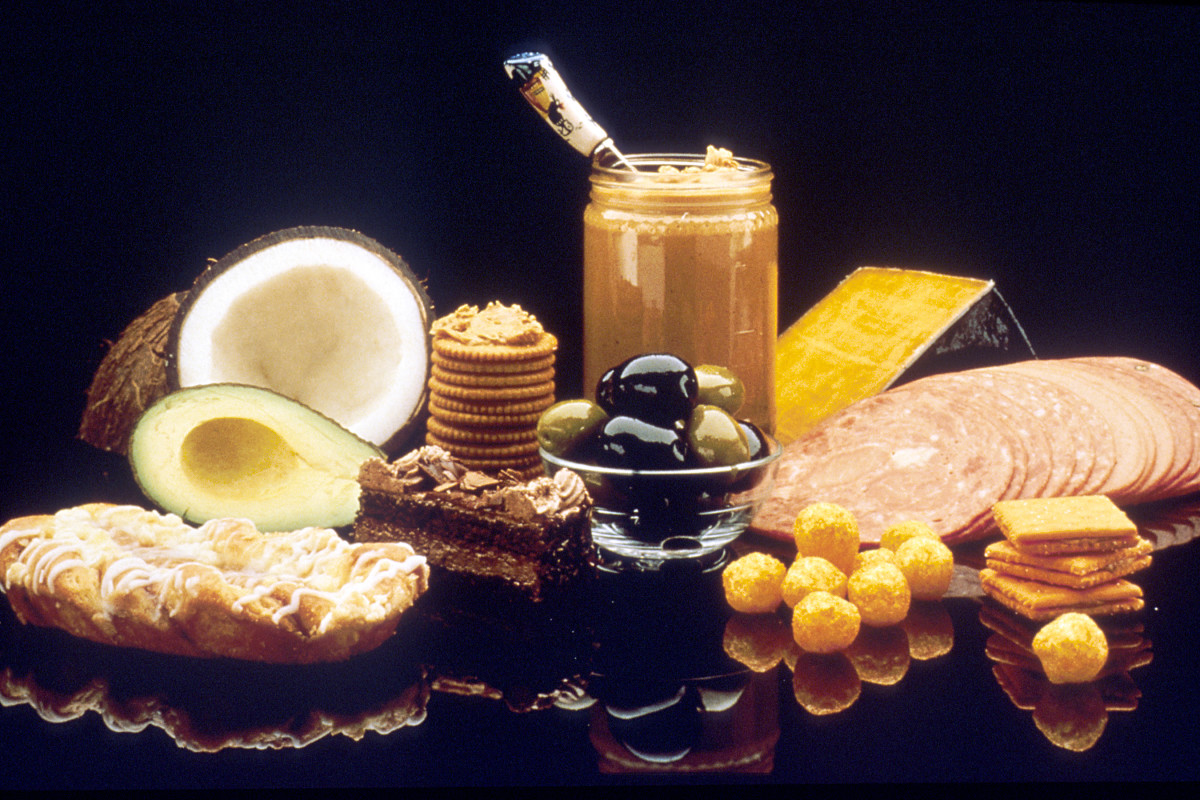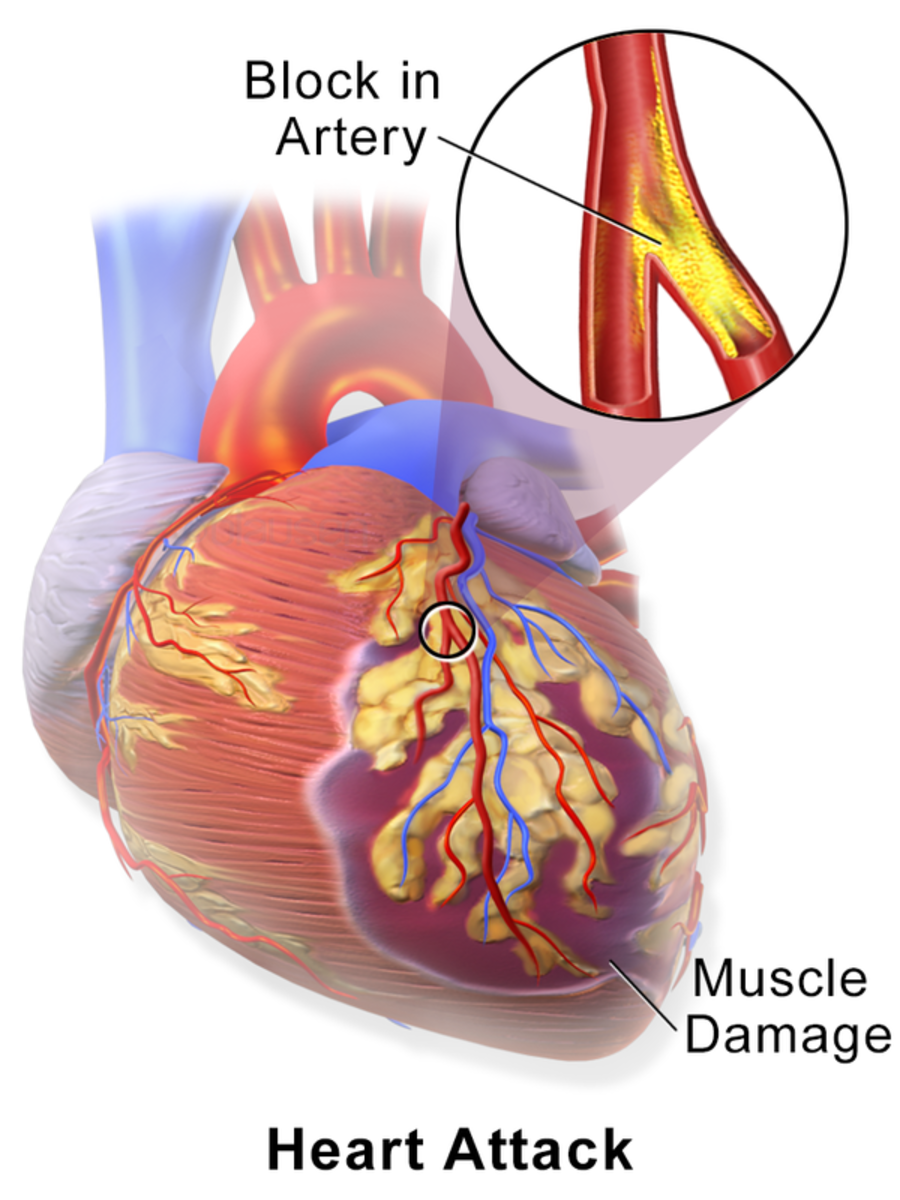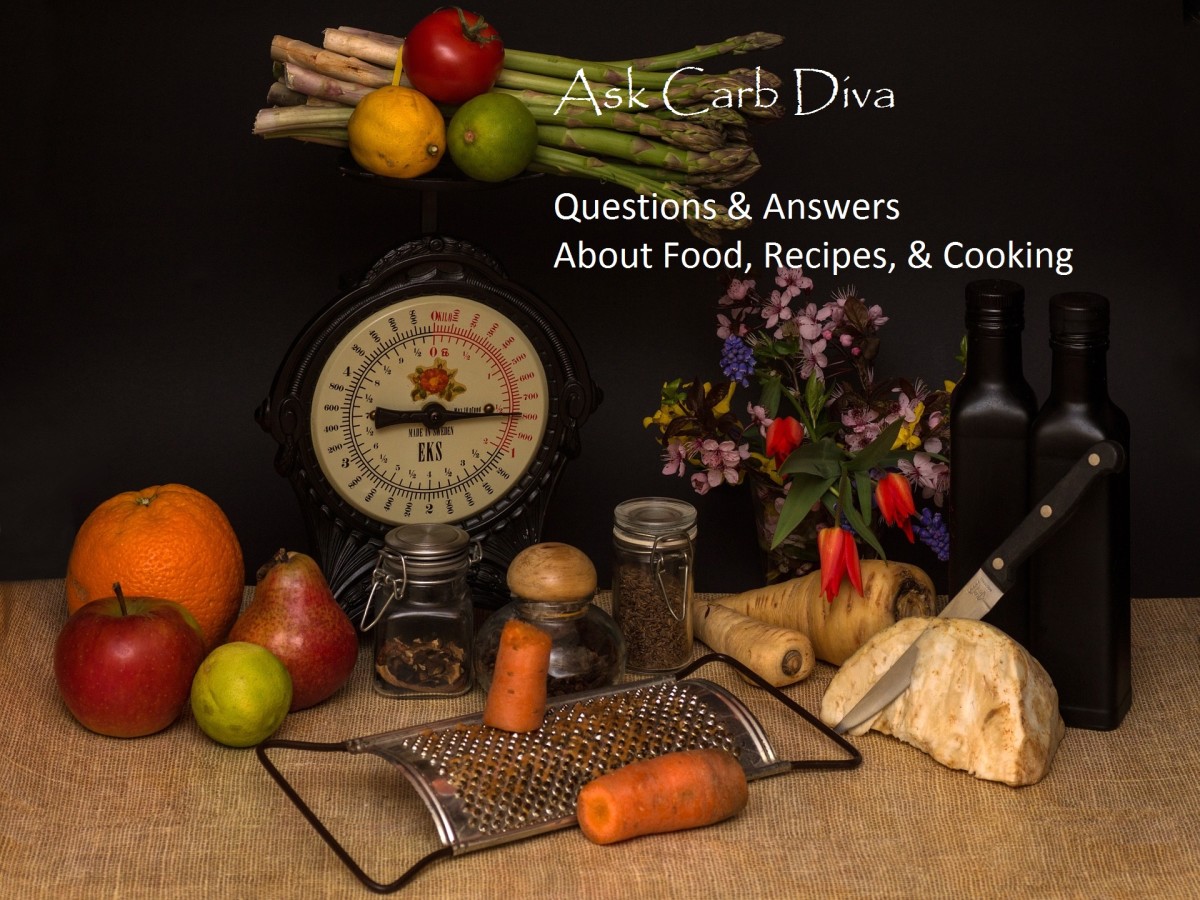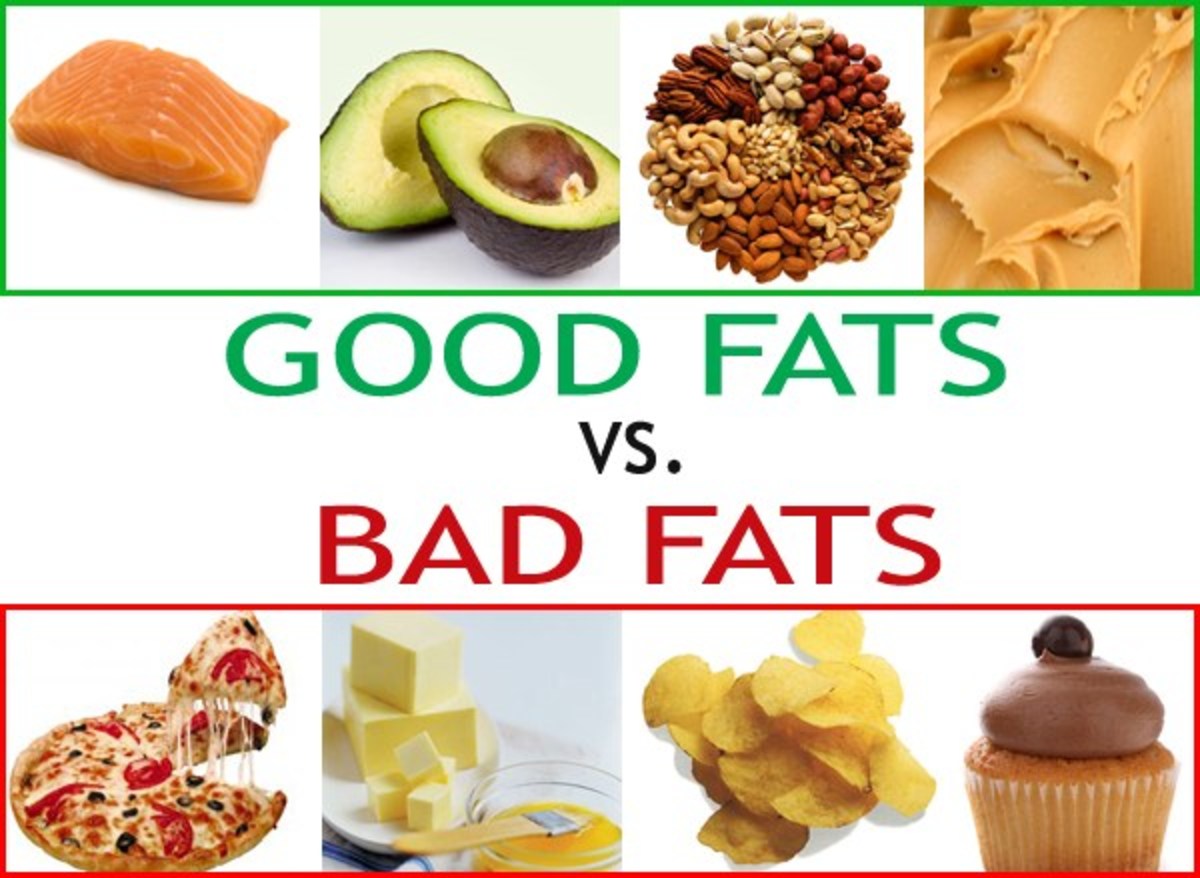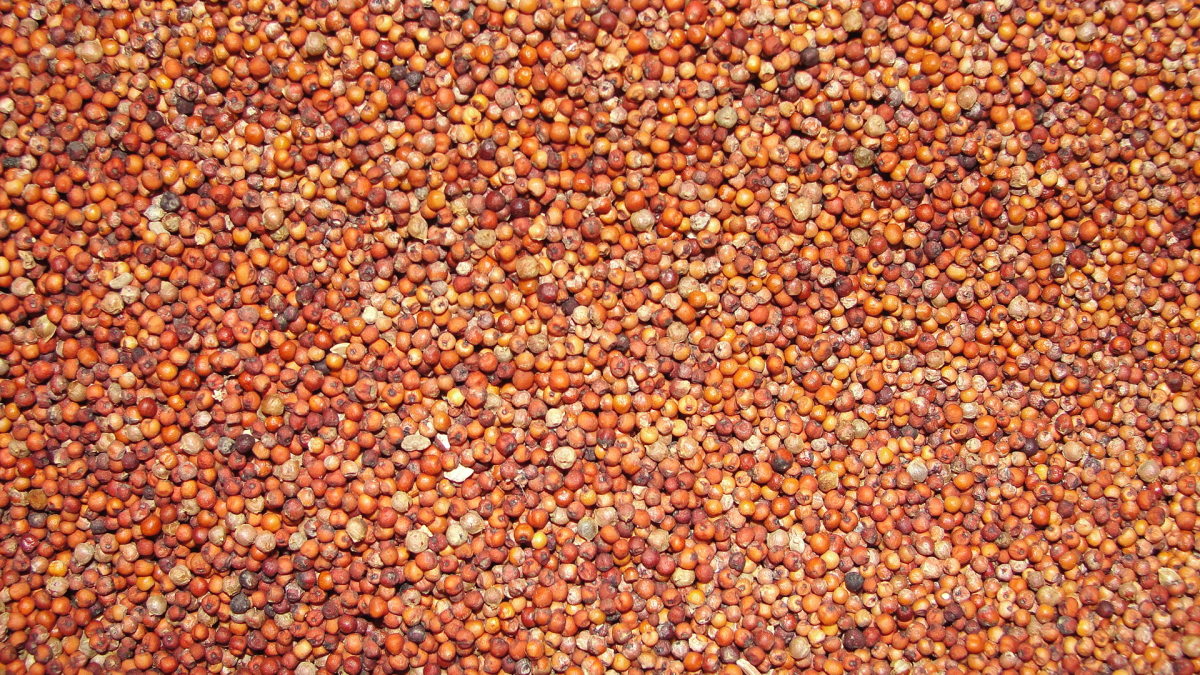Saturated Fats: Good, Bad or Indifferent?

Do you ever feel like the mission of scientists and nutritionists is just to confuse us? Does the never-ending cycle of the same food being good for us, then poison, then good again, make your head spin?
If there was one thing scientists seemed to be sure about it was that saturated fat was bad. It raised cholesterol, clogged arteries and caused heart attacks and strokes. It seemed that the data was very clear.
Or maybe not. At least some people are now claiming that saturated fat was vilified unfairly. The same people are vilifying sugar instead. So what was the evidence that saturated fat is bad, and what is the evidence that it really isn't?
What is the Evidence that Saturated Fat is Bad?
Saturated fat became a public health enemy because of the alarmingly rising levels of heart disease in the 70s and 80s. High cholesterol levels are an important risk factor of heart disease. And saturated fats increase cholesterol levels. Ergo saturated fats cause heart disease.
There was also the famous Seven Countries Study. This was a massive epidemiological longitudinal study looking at the life style in seven different countries (USA, UK, Italy, Greece, Finland, the Netherlands, Yugoslavia, and Japan).
The study was co-ordinated by Ancel Keys from the University of Minnesota starting from 1958. It clearly showed the connection between raised cholesterol levels and cardiovascular disease, and the link between a diet high in saturated fats and heart disease.
Incidentally the Seven Countries Study was also the first one to uncover the health benefits of the Mediterranean diet.
Those were the two pieces of evidence that showed that saturated fats are very bad for you, and started a massive campaign to get us to reduce their content in our food. So what does the 'pro-saturated camp' have to say about them?
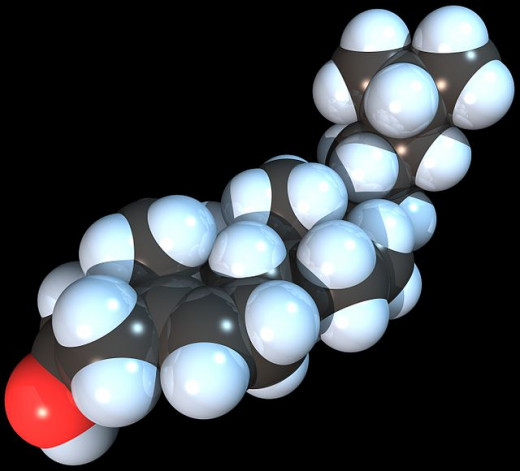
Why the Cholesterol-Raising Properties of Saturated Fats Might not be Dangerous
But scientific evidence is just that. It is not proof. Evidence can be questioned and the methodologies of studies rubbished.
First of all cholesterol. Our understanding of it is much more sophisticated than it was in the 70s and 80s. You might have heard the terms 'good cholesterol' and bad cholesterol.
Actually, to be pedantic, the terms don't make sense, there is only one type of cholesterol molecules. And actually, rather than being 'good' or 'bad' it is absolutely essential for life, in fact our own body makes it!
But cholesterol is insoluble in water. So to be carried around in the blood it has to be bound to other types of molecules called lipoproteins. T
There are two major types of lipoproteins that carry cholesterol, low-density (LDL) and high-density (HDL), and it is high levels of LDL-cholesterol that are a risk factor for heart disease. High levels of the HDL cholesterol are thought to be good (so to simplify LDL is 'bad cholesterol' while HDL is 'good cholesterol'.
Now saturated fats increase the overall cholesterol levels, both the LDL and the HDL. Their effects might cancel out to some extent.
But the story gets a little bit more complicated. There are subtypes of low density lipoprotein too. There are big particles of LDL-cholesterol, and small dense particles, and it is precisely the small particles that are responsible for starting atherosclerotic plaques (artery clogging). The big particles apparently are harmless.
Guess what? there is some evidence that consuming saturated fats actually converts the bad small dense LDL particles into the harmless big LDL particles. Although it raises cholesterol overall, it might not raise the particular LDL types that cause plaques to deposit in arteries.
Criticism of the Seven Countries Study
The methodology of the Seven Countries Study has also been criticised. For one thing, there is data available for 21 countries, not just seven. When the larger data set is analysed the link between saturated fats and heart disease is far less clear.
There are countries where the population consumes a lot of saturated fat, but is healthy.
The other argument of the study's critics is that it didn't discount the effect of sugar consumption as the main factor of bad health. Countries such as the UK and the USA where heart disease levels are very high consume far more refined sugar than countries such as Italy or Japan where heart disease levels are lower.
It is sugar not saturated fats that is the real dietary villain these people claim.
Other Arguments Exonerating Saturated Fats
People also argue that saturated fats are not bad for health by pointing out that despite the fact that we have reduced their consumption in our diet we have not become healthier. Heart disease is still the top killer, and the rates of obesity and type II diabetes have soared.
These kinds of arguments look attractive at first glance. However, it can always be argued that we'd be even more unhealthy if we hadn't cut down on saturated fat.
The other argument that I don't find particularly convincing is the fact that in the past man ate a diet full of saturated fat, and yet didn't suffer from the 'diseases of civilisation'. I'm not entirely sure whether paleo man was really that healthy. He probably died of infection or sabre-tooth tiger attack before he had a chance to develop a heart condition.
More interesting is this 2014 meta analysis trying to determine whether substituting saturated with polyunsaturated fats (found in vegetable oils) resulted in improved health. As the name suggests meta analyses look at a number of studies, in this case covering over 600,000 subjects, and draws conclusions from the overall data.
The authors very politely concluded that 'Current evidence does not clearly support guidelines that encourage high consumption of polyunsaturated fatty acids and low consumption of total saturated fats'.
The issue is far from settled, however, there are scientists who criticise the above study and insist that saturated fats cause heart disease.

But is Saturated Fat Actually Good for You?
The possibility that saturated fat is not unhealthy is one thing, but is it actually good for your health?
Apart from a couple of special fats, there is really no evidence that it is healthy.
The two exceptions might be butter, which provides fat soluble vitamins, especially vitamin K and butyrate, and possibly coconut oil. Those fats might be healthy.
In general though, saturated fat is at best neutral, rather than actually beneficial. The problem with following medical advice and cutting it out of our diets was it was substituted with truly awful chemicals. Especially in processed foods.
One of those was of course trans fats. Man made lipids that everybody agrees are bad for you.
Then there is all the added sugar, or high-fructose corn syrup, added to low fat foods to make them tastier. Many people now argue that it is refined sugar, and especially fructose causes many of the modern diseases, including heart disease and type II diabetes.
Even using vegetable oils, rich in polyunsaturated fatty acids, instead of saturated animal fats has unclear benefits, as the 2014 meta analysis shows. The fact is that although omega-3 PUFAs, found in fish oil are clearly beneficial, omega-6 PUFAs, found in vegetable oil might be causing their own problems.
Because the two types (omega-3 and omega-6) of the polyunsaturated fatty acids compete for rate limiting enzymes they need to be consumed in the correct ratio. The modern diet has a huge excess of omega-6 compared to omega-3. Some estimates are that modern man eats 20x as much omega-6 as -3, when the optimal ratio is 1:1 to 4:1.
The two types of fatty acids often have opposing actions so the balance between them is so important for health. For example omega-6 fatty acids have a pro-inflammatory action whereas omega-6 fatty acids are anti-inflammatory. Substituting animal fats with vegetable oil, rich in omega-6, might cause chronic inflammation, a risk factor for many diseases.

